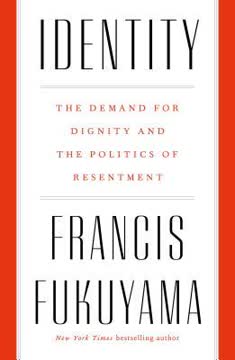Key Takeaways
1. The Afrikaners Evolved from a Diverse Cape Community
No longer Dutch or European, they had grown into a community that adopted the name of the continent.
Diverse Origins. The Afrikaner people emerged not from a single European stock, but from a blend of Dutch, German, and French Huguenot settlers, along with influences from slaves and indigenous populations. This unique mix shaped their language, culture, and identity in the crucible of the Cape Colony.
- Dutch formed the initial cultural and legal framework.
- German immigrants added to the burgher population.
- French Huguenots contributed resilience and skills.
- Slaves influenced language and customs.
Early Cape Society. The early Cape settlement was characterized by a fluid social structure, with intermarriage and cultural exchange between Europeans and slaves. Over time, however, a more rigid social hierarchy emerged, with Europeans increasingly defining themselves as a distinct group. This shift laid the groundwork for the development of a unique Afrikaner identity rooted in the African soil.
Emergence of Afrikaner Identity. By the late 18th century, a distinct Afrikaner identity began to solidify, marked by the Afrikaans language, a strong sense of community, and a growing attachment to the African continent. This identity was forged through interactions with the land, conflicts with indigenous groups, and resistance to British rule. The name "Afrikaner" itself became a badge of pride, signifying a people born of Africa.
2. Frontiersmen Shaped a Unique Identity Through Self-Reliance
All of Africa would not be enough to suit and satisfy this class of people.
Expansion into the Interior. Driven by a thirst for land and independence, Afrikaner frontiersmen, known as trekboers, ventured deep into the interior of South Africa, establishing a way of life characterized by self-reliance, resilience, and a strong connection to the land. This expansion led to clashes with indigenous groups and the development of a distinct frontier culture.
- Loan farm system facilitated expansion.
- Extensive agriculture became the norm.
- Commandos were formed for self-defense.
Adaptation and Independence. Living far from established settlements, the trekboers adapted to the harsh African environment, borrowing from Khoikhoi culture and developing a unique blend of European and African customs. This isolation fostered a spirit of independence and a rejection of European norms, contributing to the formation of a distinct Afrikaner identity.
Clash of Cultures. The frontiersmen's expansion brought them into conflict with the San (Bushmen) and Xhosa people, leading to violence and displacement. These conflicts shaped their worldview and contributed to a sense of themselves as a chosen people, destined to claim the land for their own. The frontiersmen's experience of self-reliance and conflict solidified their identity as a distinct group, separate from both Europeans and other African peoples.
3. Slavery's Legacy Created Deep Social and Economic Divisions
Slavery has become a necessary evil that cannot be removed.
Economic Foundation. Slavery became deeply entrenched in the Cape Colony, providing a cheap labor force for agriculture and other industries. This reliance on slave labor shaped the social structure, creating a divide between slave owners and the enslaved, and fostering a culture of dependency and exploitation.
- Slaves were imported from various regions.
- Slave labor was used in agriculture and households.
- Slave ownership became a status symbol.
Social Hierarchy. The institution of slavery created a rigid social hierarchy, with Europeans at the top and slaves at the bottom. This hierarchy was reinforced by laws and customs that denied slaves basic human rights and perpetuated their subjugation. The legacy of slavery continues to shape South African society today.
Abolition and its Aftermath. The abolition of slavery in 1834, while a step towards justice, created new challenges. Slave owners received compensation, while the formerly enslaved were left with little to no resources. This economic disparity further entrenched social divisions and contributed to the resentment that fueled the Great Trek. The abolition of slavery, while morally necessary, left a legacy of economic inequality and social division that continues to plague South Africa today.
4. British Rule Introduced Lasting Changes and Resentments
Let your language and nationality go.
Cultural Imposition. British rule brought significant changes to the Cape Colony, including the imposition of English as the official language, the introduction of British legal and administrative systems, and the arrival of British settlers. These changes were often met with resistance from Afrikaners, who felt their culture and identity were under threat.
- English became the language of government and law.
- British settlers altered the social landscape.
- The jury system was introduced.
Political Disenfranchisement. The British administration's policies, such as the abolition of slavery and the introduction of a non-racial franchise (albeit with property qualifications), challenged the existing social order and created resentment among some Afrikaners. This resentment fueled the Great Trek and contributed to the development of Afrikaner nationalism.
Seeds of Conflict. While British rule brought some benefits, such as improved infrastructure and a more efficient administration, it also sowed the seeds of future conflict. The cultural imposition, political disenfranchisement, and economic changes introduced by the British created a sense of grievance among Afrikaners, contributing to the rise of Afrikaner nationalism and the eventual establishment of apartheid.
5. The Great Trek Symbolized a Quest for Freedom and Self-Determination
For liberty we have sacrificed all.
Motivations for the Trek. The Great Trek, a mass migration of Afrikaners from the Cape Colony in the 1830s and 1840s, was driven by a desire for freedom from British rule, resentment over the abolition of slavery, and a yearning for land and self-determination. This exodus marked a turning point in Afrikaner history, leading to the establishment of independent Boer republics in the interior of South Africa.
- Desire for independence from British rule.
- Resentment over the abolition of slavery.
- Yearning for land and self-determination.
Hardships and Conflicts. The Voortrekkers faced immense hardships on their journey, including disease, hunger, and conflicts with indigenous groups. These challenges tested their resilience and strengthened their sense of community, forging a distinct identity rooted in hardship and perseverance.
Legacy of the Trek. The Great Trek became a central myth in Afrikaner history, symbolizing their courage, determination, and commitment to freedom. It also laid the foundation for the establishment of independent Boer republics, which would later come into conflict with British imperial ambitions. The Great Trek remains a powerful symbol of Afrikaner identity and a testament to their enduring quest for self-determination.
6. Colonists and Republicans Forged Separate Political Paths
Colonists of Dutch origin cannot become Englishmen.
Diverging Ideologies. By the mid-19th century, Afrikaners were divided between those who remained in the Cape Colony and those who established independent republics in the interior. This division led to the development of distinct political ideologies, with colonists embracing a form of British liberalism and republicans advocating for self-governance and racial segregation.
- Colonists embraced British liberalism.
- Republicans advocated for self-governance.
- Racial segregation became a key issue.
Cape Colony Politics. In the Cape Colony, Afrikaners participated in the parliamentary system, advocating for their interests within the framework of British rule. They gradually gained political influence, but also faced pressure to assimilate into British culture and adopt the English language.
Republican Ideals. In the Boer republics, Afrikaners established their own political systems, based on principles of self-governance and racial segregation. These republics became symbols of Afrikaner independence and resistance to British imperialism, but also faced challenges in maintaining stability and economic viability. The division between colonists and republicans reflected a fundamental tension within Afrikaner society, between those who sought to integrate into the British Empire and those who sought to create a separate Afrikaner nation.
7. The South African War Tested Afrikaner Resolve and Unity
The courage and bravery of your troops have shone out and the world shall hear the name of the Afrikaans Boer with respect and awe.
Causes of the War. The South African War (1899-1902), also known as the Anglo-Boer War, was a watershed event in Afrikaner history. Fueled by British imperial ambitions and the discovery of gold in the Transvaal, the war pitted the Boer republics against the might of the British Empire.
- British imperial ambitions.
- Discovery of gold in the Transvaal.
- Boer resistance to British rule.
Boer Resistance. Despite being outnumbered and outgunned, the Boers mounted a fierce resistance, employing guerrilla tactics and demonstrating remarkable resilience. The war became a symbol of Afrikaner courage and determination, but also brought immense suffering and devastation.
Aftermath and Legacy. The war ended with the defeat of the Boer republics and their incorporation into the British Empire. However, the war also sparked a renewed sense of Afrikaner nationalism and a determination to regain their independence. The war's legacy continues to shape South African society today, serving as a reminder of the deep divisions and enduring struggles that have marked the country's history.
8. Reconciliation and Union Shaped a New South Africa
Never forget that I am an Afrikaner, and therefore have an interest in my fellow countrymen who have emigrated.
Path to Union. In the aftermath of the South African War, efforts were made to reconcile Afrikaners and English speakers and to create a unified South Africa. This process culminated in the formation of the Union of South Africa in 1910, a self-governing dominion within the British Empire.
- Reconciliation efforts between Afrikaners and English speakers.
- Negotiations for a unified South Africa.
- Formation of the Union of South Africa in 1910.
Compromises and Challenges. The Union was built on compromises, including the retention of existing racial laws and the exclusion of black Africans from political participation. These compromises, while necessary to achieve white unity, laid the groundwork for future conflict and injustice.
Seeds of Apartheid. The Union's failure to address the fundamental issue of racial inequality set the stage for the rise of apartheid. The exclusion of black Africans from political power and the entrenchment of racial segregation would have far-reaching consequences for South African society. The Union, while a step towards unity, ultimately failed to create a truly inclusive and just society.
9. Boer Women Played a Pivotal Role in Shaping Afrikaner Identity
The women are as dangerous as the men and do not keep quiet.
Strong Social Standing. Boer women enjoyed a uniquely strong social standing and legal entitlement compared to women in other parts of the world. This stemmed from Roman-Dutch law, which recognized women's rights and property ownership.
- Roman-Dutch law provided women with rights.
- Women actively participated in political affairs.
- Women played a key role in shaping Afrikaner culture.
Resistance to British Rule. Boer women played a crucial role in resisting British rule, both during the Great Trek and the South African War. They provided support and encouragement to their menfolk, and often took up arms themselves to defend their homes and families.
Guardians of Culture. Boer women were instrumental in preserving Afrikaner culture and language, passing down traditions and values to future generations. They also played a key role in shaping Afrikaner identity, emphasizing the importance of family, faith, and a strong connection to the land. The strength and resilience of Boer women became a defining characteristic of Afrikaner identity.
10. Afrikaans Emerged as a Powerful Symbol of Afrikaner Identity
We write as we speak.
Origins of Afrikaans. Afrikaans, a unique language that evolved from Dutch, became a powerful symbol of Afrikaner identity. It represented a break from European norms and a connection to the African soil.
- Afrikaans evolved from Dutch.
- It became a lingua franca for diverse groups.
- It symbolized a break from European norms.
Language Movements. The struggle for the recognition of Afrikaans as an official language was a key element in the development of Afrikaner nationalism. Language movements sought to promote Afrikaans in schools, churches, and public life, solidifying its status as a symbol of Afrikaner identity and cultural pride.
Afrikaans Literature and Culture. The development of Afrikaans literature and culture further strengthened its role as a symbol of Afrikaner identity. Afrikaans writers and artists created a body of work that reflected the unique experiences and values of the Afrikaner people, contributing to a sense of cultural distinctiveness and national pride. The Afrikaans language became a powerful tool for expressing Afrikaner identity and promoting their cultural and political aspirations.
11. Apartheid's Roots Lay in Segregation and Control
The Afrikaners have never experienced the luxury of safety in numbers.
Segregation and Discrimination. Apartheid, a system of racial segregation and discrimination, became the defining feature of South African society for much of the 20th century. Rooted in a desire to maintain white minority rule, apartheid laws and policies systematically oppressed black Africans and other non-white groups.
- Racial classification became law.
- Segregation was enforced in all aspects of life.
- Black Africans were denied basic rights.
Ideological Justification. Apartheid was justified by a complex ideology that drew on notions of racial superiority, cultural purity, and the need to maintain social order. This ideology was used to legitimize the oppression of black Africans and to maintain white minority rule.
Consequences of Apartheid. Apartheid had devastating consequences for South African society, creating deep social and economic inequalities, fostering violence and conflict, and isolating the country from the international community. The legacy of apartheid continues to shape South Africa today, posing significant challenges to reconciliation and social justice.
12. The End of Apartheid Ushered in a New Era of Transformation
We must not sacrifice the Afrikaans nation for independence.
Internal and External Pressures. By the late 20th century, apartheid had become increasingly unsustainable. Internal resistance, international sanctions, and economic pressures forced the South African government to reconsider its policies.
- Black resistance grew stronger.
- International sanctions isolated South Africa.
- Economic pressures mounted.
Negotiations and Transition. In 1990, President F.W. de Klerk took the bold step of unbanning the African National Congress (ANC) and releasing Nelson Mandela from prison. This paved the way for negotiations between the government and the ANC, leading to the dismantling of apartheid and the establishment of a democratic South Africa.
Legacy of Transformation. The transition to democracy in South Africa was a remarkable achievement, but the legacy of apartheid continues to pose significant challenges. The country faces deep social and economic inequalities, as well as the ongoing task of reconciliation and nation-building. The story of the Afrikaners, from their diverse origins to their role in shaping apartheid and their eventual embrace of democracy, remains a complex and compelling chapter in South African history.
Last updated:
FAQ
What is The Afrikaners: Biography of a People by Hermann Giliomee about?
- Comprehensive historical narrative: The book traces the origins, development, and transformation of the Afrikaner people from the founding of the Cape settlement in 1652 to the post-apartheid era.
- Focus on identity and culture: It explores how Afrikaners forged a distinct identity, language, and culture, shaped by social, political, and economic forces.
- Dramatic storytelling: Giliomee presents history as a living, dramatic story, making complex events accessible and engaging for readers.
- Wide historical scope: The narrative covers key events such as the Great Trek, Anglo-Boer War, rise of Afrikaner nationalism, apartheid, and the transition to democracy.
Why should I read The Afrikaners: Biography of a People by Hermann Giliomee?
- Authoritative and balanced perspective: Giliomee is a respected historian who offers a nuanced, well-researched account, avoiding stereotypes and simplistic narratives.
- Essential context for South Africa: The book provides crucial insights into the roots of South Africa’s social, political, and racial dynamics, including the origins of apartheid.
- Engaging and accessible: The narrative style makes complex history compelling for both scholars and general readers.
- Comprehensive coverage: It condenses vast historical data, making it an excellent starting point for understanding Afrikaner history and its impact on modern South Africa.
What are the key themes and takeaways from The Afrikaners: Biography of a People by Hermann Giliomee?
- Afrikaner identity and language: The evolution of Afrikaans as a symbol of unity and cultural survival is central, reflecting the community’s struggle for recognition.
- Political and economic mobilization: The rise of Afrikaner nationalism, the National Party, and collective economic upliftment are explored in depth.
- Complexity of apartheid: Apartheid is presented as a multifaceted policy shaped by ideology, church influence, and political pragmatism, not as a monolithic system.
- Transition and reconciliation: The peaceful negotiation to end apartheid and the challenges of building a new South Africa are highlighted as major historical achievements.
How did Afrikaner identity develop according to The Afrikaners: Biography of a People by Hermann Giliomee?
- Mixed origins: Afrikaner identity emerged from a diverse mix of Dutch, French Huguenot, German, slave, and indigenous influences at the Cape.
- Language formation: Afrikaans developed as a lingua franca among settlers, slaves, and indigenous people, becoming a key marker of identity.
- Religious self-understanding: Covenant theology and a sense of being a "chosen people" reinforced group cohesion and cultural preservation.
- Racial boundaries: Endogamy and social boundaries solidified a distinct Afrikaner community, especially from the 18th century onward.
How did Afrikaans develop as a language and symbol in The Afrikaners: Biography of a People by Hermann Giliomee?
- Creole origins: Afrikaans evolved from a vernacular spoken by settlers, slaves, and indigenous people, incorporating diverse linguistic influences.
- Struggle for recognition: Initially dismissed as "kitchen Dutch," Afrikaans was championed by cultural leaders and became a rallying point for Afrikaner nationalism.
- Official status: Afrikaans gained official recognition in 1925, replacing Dutch and becoming central to education, literature, and identity.
- Cultural significance: The language became a unifying force and a symbol of resistance to British cultural domination.
What role did slavery and race play in the formation of Afrikaner society in The Afrikaners: Biography of a People by Hermann Giliomee?
- Economic foundation: Slavery was integral to the Cape economy and social structure, with slaves providing essential labor and status.
- Social hierarchies: Strict racial boundaries and paternalistic ideologies developed, with slaves and indigenous people excluded from full participation.
- Harsh realities: Slavery was marked by severe punishments and periodic uprisings, revealing deep social tensions.
- Abolition impact: The British abolition of slavery in 1834 caused economic and social upheaval, intensifying Afrikaner resentment toward British rule.
How did British colonial rule affect Afrikaners, according to The Afrikaners: Biography of a People by Hermann Giliomee?
- Cultural imposition: British authorities promoted English language and institutions, often disparaging Afrikaner culture and history.
- Political marginalization: Traditional Afrikaner political structures were replaced by British-appointed officials, reducing Afrikaner influence.
- Slavery abolition: The British-led abolition of slavery was deeply unpopular among Afrikaners, fueling alienation and resistance.
- Settler tensions: The arrival of British settlers increased competition and cultural conflict, but also led to new political alliances.
What was the Great Trek and why is it significant in The Afrikaners: Biography of a People by Hermann Giliomee?
- Mass migration: The Great Trek (1835–1845) saw thousands of Afrikaners leave the Cape Colony to escape British rule and seek autonomy.
- Motivations: Driven by dissatisfaction with British policies, frontier insecurity, and a desire to preserve Afrikaner culture.
- Political outcomes: Led to the establishment of Boer republics, which became centers of Afrikaner nationalism and resistance.
- Cultural symbolism: The Trek became a foundational myth, symbolizing sacrifice, freedom, and a covenant with God.
How does The Afrikaners: Biography of a People by Hermann Giliomee describe the Anglo-Boer War and its impact?
- Origins of conflict: The war (1899–1902) stemmed from British imperial ambitions, Afrikaner independence, and disputes over rights for foreign miners.
- Brutal warfare: Featured scorched earth tactics, concentration camps, and significant civilian suffering.
- Afrikaner resilience: The bittereinders continued guerrilla resistance, embodying Afrikaner determination and nationalism.
- Aftermath: The war devastated Afrikaner society but also fostered unity and shaped future political developments.
What role did the National Party and Afrikaner nationalism play according to The Afrikaners: Biography of a People by Hermann Giliomee?
- Formation and rise: The National Party was founded in 1914 to advocate Afrikaner interests, gaining power by capitalizing on grievances and cultural nationalism.
- Apartheid ideology: The party developed and implemented apartheid as a comprehensive policy of racial segregation and Afrikaner empowerment.
- Economic upliftment: Promoted Afrikaner economic advancement through institutions and policies favoring white workers and farmers.
- Political dominance: The National Party maintained control for decades, shaping South Africa’s political and social landscape.
How does The Afrikaners: Biography of a People by Hermann Giliomee explain the origins and implementation of apartheid?
- Church and ideological roots: Apartheid was influenced by Dutch Reformed Church doctrines and the idea of volkseie (a people’s own character).
- Legal framework: Enforced through laws like the Population Registration Act and Group Areas Act, institutionalizing racial classification and segregation.
- Economic and social control: Apartheid regulated land, labor, education, and political rights, severely restricting non-white South Africans.
- Internal and external resistance: The policy faced growing opposition domestically and internationally, leading to eventual reform.
How does The Afrikaners: Biography of a People by Hermann Giliomee describe the transition from apartheid to democracy?
- Negotiated settlement: The transition was marked by negotiations between the National Party, ANC, and other groups, with leaders like FW de Klerk and Nelson Mandela playing pivotal roles.
- Challenges and violence: The process was fraught with violence, mistrust, and complex political maneuvering, including incidents like the Boipatong and Bisho massacres.
- Peaceful outcome: Despite deep divisions, the transition to democracy in 1994 was relatively peaceful compared to other conflicts.
- Legacy and reconciliation: The book highlights the spirit of reconciliation and the challenges Afrikaners faced in adapting to the new South Africa.
Review Summary
The Afrikaners is widely praised as a comprehensive, honest history of the Afrikaner people. Readers appreciate Giliomee's balanced approach, debunking myths while acknowledging both positive and negative aspects of Afrikaner history. The book is lauded for its depth, detail, and scholarly rigor. Some find the writing style dry at times, but most remain engaged due to the compelling content. A few criticize the updated edition's final chapters as less balanced. Overall, reviewers consider it an essential work for understanding South African history and Afrikaner identity.
Similar Books
Download PDF
Download EPUB
.epub digital book format is ideal for reading ebooks on phones, tablets, and e-readers.












